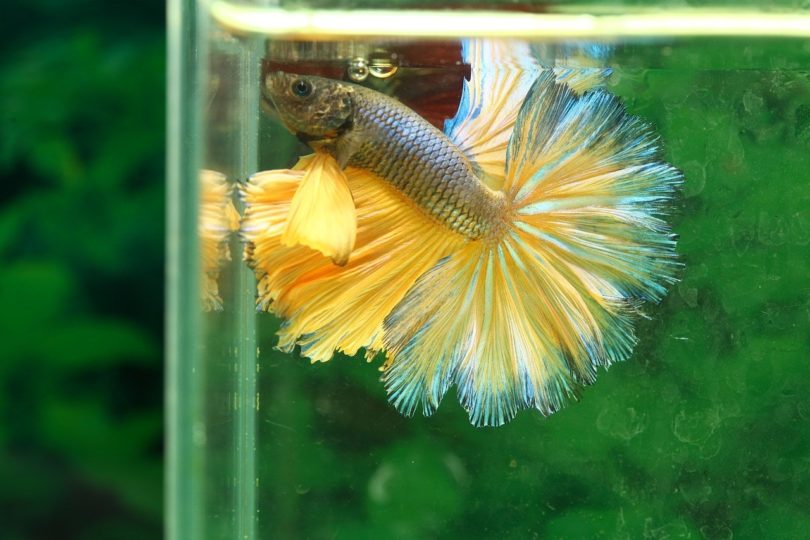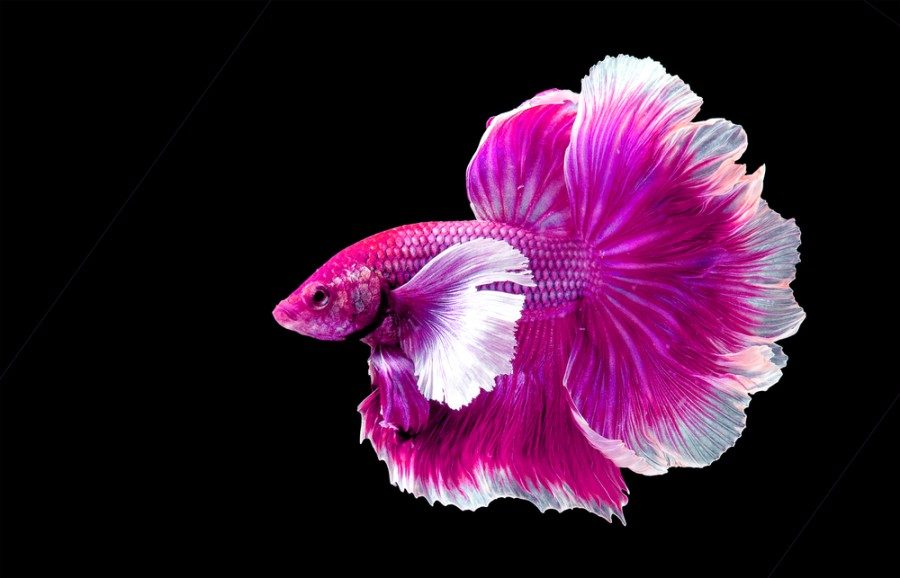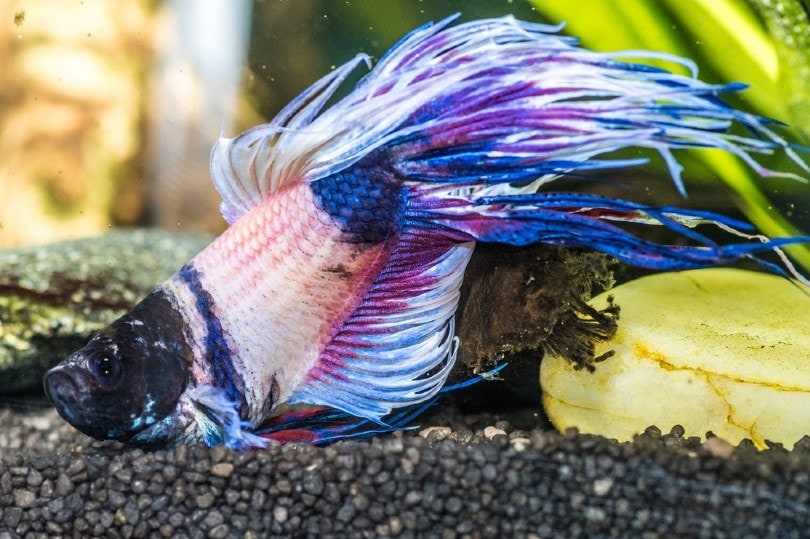Can Betta Fish Live in a Bowl? Vet-Approved Fish Essentials & Care Tips
Updated on
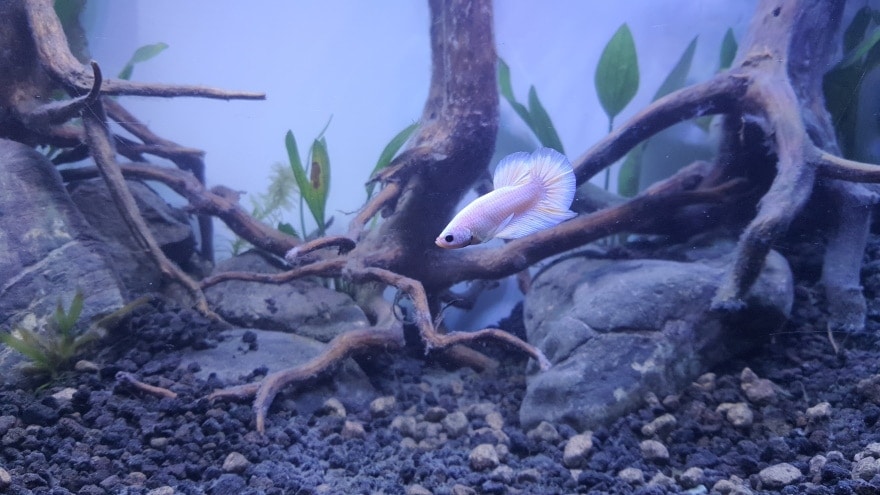
Every time you walk into the pet store, you see those tiny cups containing Betta fish. You may think about how sad it is that they’re kept in such a small environment while waiting for a home, or you may think that if they can survive in a home that size that they’re the perfect candidate for a fishbowl or vase, or even an aquarium1.
As one of the most popular freshwater fish in the world, their care should be pretty straightforward, right? Well, that’s not exactly the case. While Bettas are low-maintenance fish, they do still have some specific needs. As a general answer, Betta fish can only live in a bowl with the proper setup (which is much easier to achieve in an aquarium). For people new to the hobby of fish keeping, fish bowls are not recommended for Bettas.
The needs of Betta fish are often misunderstood, and since they are often purchased on a whim, it’s not uncommon for them to go to unprepared homes. Here are the things you need to know about the environment that Betta fish need to be healthy.
Can Betta Fish Live in a Bowl?
This is a widely disagreed upon subject that doesn’t have a totally simple answer. Betta fish can live in a bowl with the right setup. Bettas are often taken home to live in 1-gallon fishbowls, which isn’t healthy for them. They require at least 5 gallons and may become stressed and sick in an environment that is too cramped. Keeping a Betta fish in a small fishbowl is doable, but it is not considered ethical, as it may shorten their life expectancy and lead to preventable problems.
Keep in mind, too, that the smaller the bowl your Betta fish is kept in, the more frequently you’ll need to perform water changes. A single Betta fish in a 5-gallon tank will require far fewer water changes than a Betta fish in a 1-gallon bowl. The smaller the environment, the larger the commitment to upkeep will be for you.
Bowls are not without their issues. Some of their biggest problems include the following:
- They rarely offer enough space for a Betta.
- They usually don’t have a lid and Bettas can jump. This makes them more dangerous than aquariums that come with a lid.
- Their shape leads to poor water circulation and low dissolved oxygen in the aquarium, making it difficult to find suitable tank mates for your Betta to set up a community tank.
- Many commercial tank products are dosed with a more reasonable tank size (such as 10 gallons), so calculating the doses for the volume of water a bowl can hold can be tricky. Overdosing or underdosing medicine or other products renders them dangerous or ineffective, respectively.
- Many tank products are difficult to properly attach inside a bowl (because of their shape).
- Cleaning the corners and crevices of a fish bowl can be tricky; most tank sponges and gravel vacuum cleaners are not meant for spherical walls.
For these reasons, a large aquarium is preferred.
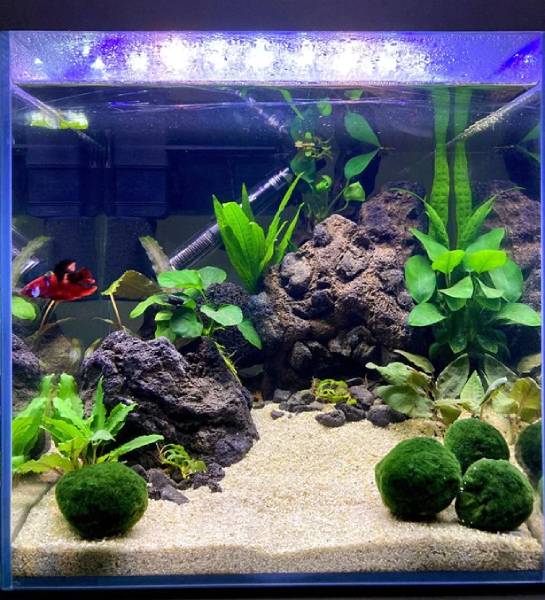
Do Betta Fish Require a Heater?
Bettas are tropical fish that can live in water temperatures from 70–85˚F (21.1-29.4˚C), but they do not thrive in this temperature range. Bettas will thrive in a temperature of around 82.4˚F (28˚C). Research has found that this is their best temperature; it minimizes the propagation of many pathogens and is also the best temperature for the stability of their bubble nests.
Unless you live in an area that is warm year-round and doesn’t have air conditioning, keeping your Betta’s water at room temperature will not keep them warm enough or stable enough. The best way to house a Betta is to place their aquarium in a room that’s just slightly below their required temperature (for example at around 80-81˚F) and use a water heater to ensure their water is kept at 82.4˚F. Water heaters are not effective in rooms that are too warm because they only work until the temperature on their setting is achieved.
You don’t have to invest in an expensive, fancy heater for your Betta fish, though. There are tons of heaters on the market, and you will likely be able to find one suitable for your tank. These heaters are typically small enough that they won’t take up a lot of space in your Betta’s bowl or tank.
Herein lies a catch, though. Most heaters are designed to work optimally in a square or rectangular aquarium and may not evenly distribute heat around a bowl. They may also be difficult to attach and completely submerge in a bowl, owing to the round shape of bowls. It is much easier to heat a rectangular or square-shaped aquarium.
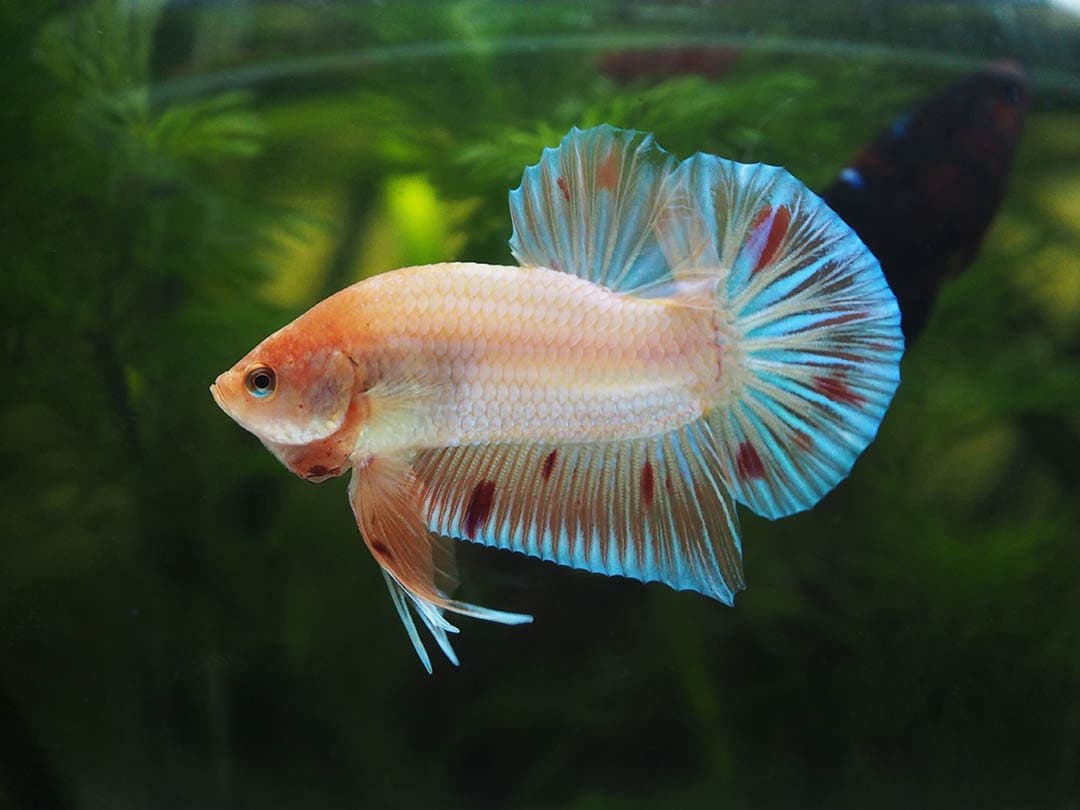
Do Betta Fish Require a Filter?
Betta fish are not strong swimmers, and they can become stressed in moderate to high flow tank environments. This can make choosing filtration difficult, often leading to people skipping out on filtration altogether. Unfortunately, Betta fish need filtration! Filters help remove waste from the water column and they are the perfect environment for the colonization of beneficial bacteria.
Beneficial bacteria, also called nitrifying bacteria, are absolutely necessary to a healthy tank environment. These bacteria remove toxic waste products, like ammonia and nitrite, from the water, keeping your fish healthy and safe. Bettas produce a lower bioload than many other popular fish, like goldfish, which means they require a lower level of filtration. However, they absolutely need filtration to maintain high water quality.
When it comes to choosing a filter for your Betta’s home, you don’t have to choose anything high tech or expensive. Sponge filters are a great option for Betta bowls and tanks because they help aerate the water without creating a significant current, and they serve as excellent environments for the colonization of beneficial bacteria. Typically, you can get an entire sponge filter setup without a heavy price tag, and they are available in multiple size and shape options to best suit your Betta’s tank or bowl.
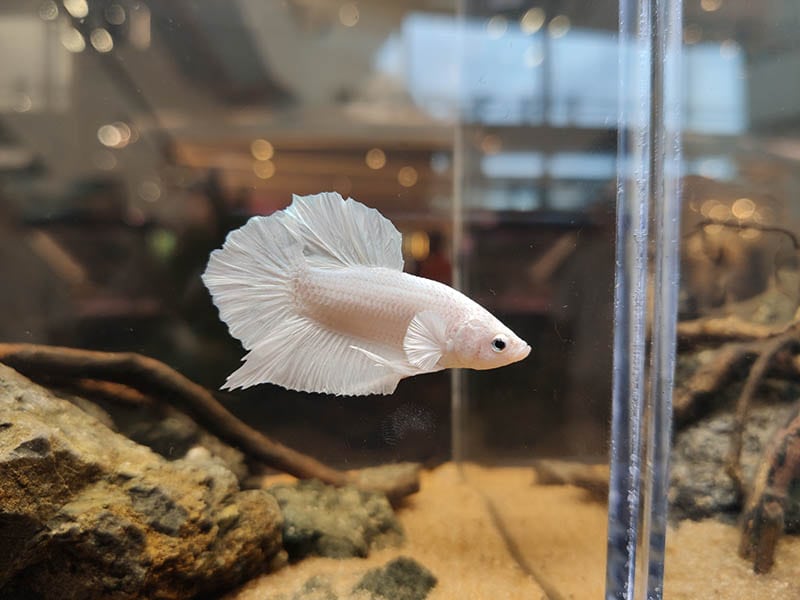
In Conclusion
Creating the perfect home for your Betta fish doesn’t have to be complicated, but it should be thoughtfully planned out and set up before bringing a Betta home. The higher the water quality and the lower the stress of the environment, the healthier your Betta fish will be. A healthy tank or bowl will improve the life expectancy of your Betta fish by reducing the risk of disease, injury, and stress.
The wide availability of Betta fish means they frequently end up in the wrong bowl or tank environment, leading to a slew of preventable diseases. The happier and healthier your Betta is, the more active it will be and the brighter its colors will be. Bettas usually live around 3–5 years, but they can live beyond this if you provide them a healthy, happy environment to thrive in by keeping their water filtered and warm. This is much easier to achieve in a good sized aquarium than a bowl.
See also: 25 Most Popular Aquarium Fish (With Pictures)
Featured Image Credit to Pras1107, Shutterstock



